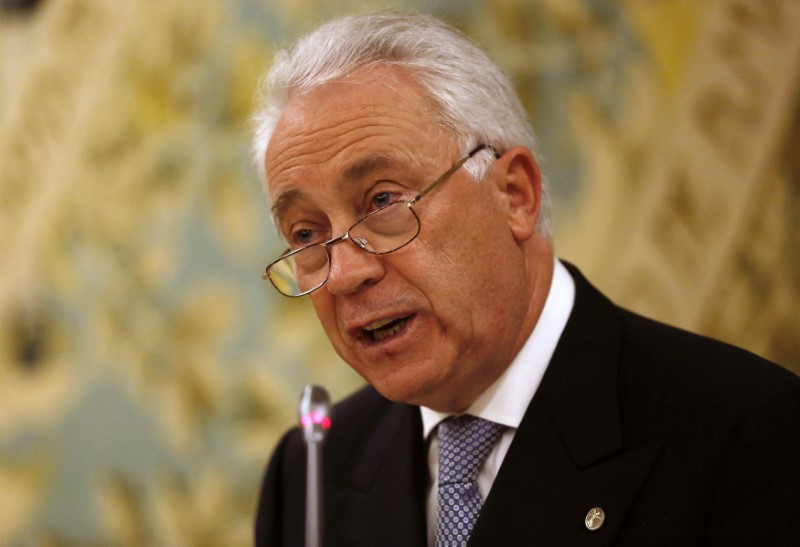LISBON (Reuters) - The European Central Bank should always manage risk with its eyes set on preserving financial and monetary stability, but it has to accept side effects that can potentially impact policy sustainability, Bank of Portugal Governor Carlos Costa said.
Costa, who is also an ECB governing council member, told a conference on risk management on Monday the difficult choices and trade-offs in deciding on the central bank strategy "will not go away in the future, because they will present (themselves) in managing the balance sheet."
"The art of the central bank is to deal with risk without losing the two goals: financial stability and monetary stability. If we are able to do that, we need to accept some collateral effects ... the price to pay in order to get these two main objectives," he said.

In deciding on their policies, "central banks need to consider not only the overall impact of those policies but also possible implications on their sustainability," he said, warning also that "failure to deliver can cause serious and long lasting reputation damage".